As a mental health counselor, I sit with clients every day and help them explore their lives. Often, clients seek counseling for what seems like a small picture issue. Maybe they’re struggling with a relationship or with an immediate change: a job change, a move, a medical issue, or a financial change. However, when we dig deeper, we often discover big picture themes that are challenging for the client, which often go unnoticed or unaddressed.
Purpose and meaning are two of those themes. So often, clients will come to me and say, “I don’t know what I’m supposed to do now.” The now is often after one of these life changes. Perhaps a spouse has passed away or the kids have moved off to college. Maybe the house seems suddenly too big, or a job no longer feels relevant. Priorities have shifted, but the shift has happened just below the surface, so everything feels a little “off.” For these clients, we begin with curiosity and questions regarding what the word purpose means, what it has meant in the past and what it looks like for the future.

JANUARY 2023 - 1
ASK THE EXPERT: DEALING WITH DEPRESSION FEATURE: FINDING PURPOSE: YOUR SECOND MOUNTAIN MS: QUESTIONS AND ANSWERS continued on page 6 J A N U A R Y 2 0 2 3 Finding Purpose: Your Second Mountain
Welcome to 2023. The new year is here and full of promise. What will we make of it?
Amy Phariss, Editor-in-Chief , OutreachNC | editor@outreachnc.com
Well, it’s official: fall is here. I had my first pumpkin-spiced latte just two days ago, as the evening temperature dipped low enough to merit a fleece. Don’t worry. It was decaf.
For some of us, 2023 is an extension of 2022. We will get ready each morning for the same jobs and schedule dinners with some of our best friends. For others, this year might include a retirement, a move or embracing these next 12 months after the loss of a loved one. For all of us, there will be unexpected bumps and surprise pleasures.
Don’t worry. It was decaf. October is a gentle month. There are constant reminders of change. we are lucky, toward each other. We have lingering conversations the flames flicker. Smoke dances around us in a circle. We zip our
October is a gentle month. There are constant reminders of change. We turn inward, toward warmth and we are lucky, toward each other. We have lingering conversations over tea. We burn fires and sit in silence the flames flicker. Smoke dances around us in a circle. We zip our jackets and consider hats.
In this month’s feature, we’re starting an important conversation: care community for ourselves or a loved one? Fox Hollow Senior Robin Hutchings offers inside perspective for making this decision.
sclerosis (MS). Seeing a need for support within the community, Seace decided to create a group offering social, educational and resource support. Many families are affected by MS, and many who live with this diagnosis struggle with lack of information, resources and support. Seace answers questions about the upcoming group and helps us understand why support is so important for everyone living with chronic illness or pain.
In this month’s feature, we’re starting an important conversation: how do we choose the proper senior care community for ourselves or a loved one? Fox Hollow Senior Living’s Sales and Marketing Director, Robin Hutchings offers inside perspective for making this decision.
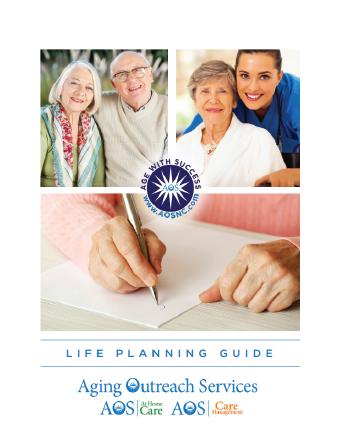
This month’s feature explores the idea of finding purpose and how we create lives rich with meaning. This can be especially challenging during times of transition. It can also be especially exciting. Learn more about how the word purpose is defined and how to create it in your own life.
In January’s Ask the Expert, Amy Natt answers a reader’s question about signs of depression in his mother and how he might approach a difficult conversation regarding mental health. This can be a tricky subject for many families, and Natt helps readers identify symptoms of depression and consider how to talk about it with parents who may not connect with this word.





In Ask the Expert, Amy Natt answers a reader’s question regarding away without any estate planning. Without a will or access to important Physical therapist Dr. Sara Morrison of Total Body Therapy and potential diagnostic tools used in physical therapy to help diagnose these tools differ from what other doctor’s offices may offer.
Amy Phariss, Editor-in-Chief , OutreachNC | editor@outreachnc.com
In Ask the Expert, Amy Natt answers a reader’s question regarding what to do when a loved one passes away without any estate planning. Without a will or access to important accounts, what does a family do?

Physical therapist Dr. Sara Morrison of Total Body Therapy and Wellness helps readers understand potential diagnostic tools used in physical therapy to help diagnose and treat pain. You’ll want to learn how these tools differ from what other doctor’s offices may offer.
I’m going to agree with Nathaniel Hawthorne this month, who I cannot endure to waste anything so precious as autumnal sunshine spent almost all the daylight hours in the open air. Here’s to enjoying the October sunshine, falling leaves and daylight
As I enter 2023 thoughtfully, I am reminded of Thomas Edison’s words: Being busy does not always mean real work. The object of all work is production or accomplishment and to either of these ends there must be forethought, system, planning, intelligence, and honest purpose, as well as perspiration. Seeming to do is not doing. Here’s to less busy and more purpose….and good, strong coffee….for the new year.

I’m going to agree with Nathaniel Hawthorne this month, who wrote: I cannot endure to waste anything so precious as autumnal sunshine by staying in the house. So I have spent almost all the daylight hours in the open air.
Here’s to enjoying the October sunshine, falling leaves and daylight hours.
AOS Care Manager Ashley Seace is up to exciting things in 2023. One of her endeavors is starting a support group for people living with multiple
facebook.com/agingoutreach/ instagram.com/agingoutreachservices/
facebook.com/agingoutreach/ instagram.com/agingoutreachservices/
2 - JANUARY 2023
ture dipped low enough to merit a fleece.
THE EDITOR
LETTER FROM
We are passionate about helping older adults navigate the many challenges of aging. 910.692.0683 AOSNC.com e in Aging Well Experts Age the Way You Choose OCTOBER
- 2
2022
THE EDITOR
LETTER FROM
We are passionate about helping older adults navigate the many challenges of aging. 910.692.0683 AOSNC.com e in Aging Well Experts Age the Way You Choose LETTER FROM THE EDITOR
Experts in Aging Well 910.692.0683 | www.AOSNC.com Aging Life Care™ Professionals have the resources and experience to help you maintain your independence. Schedule a consultation with our care management team to receive a Life Planning Guide. Your choices and wi shes deser ve to be honored No mat ter your age, hea lt h histor y or hopes ever yone needs a pla n before a crisis occurs. 2023 Make Your Plan in
Amy Phariss, Editor-in-Chief, OutreachNC | editor@outreachnc.com
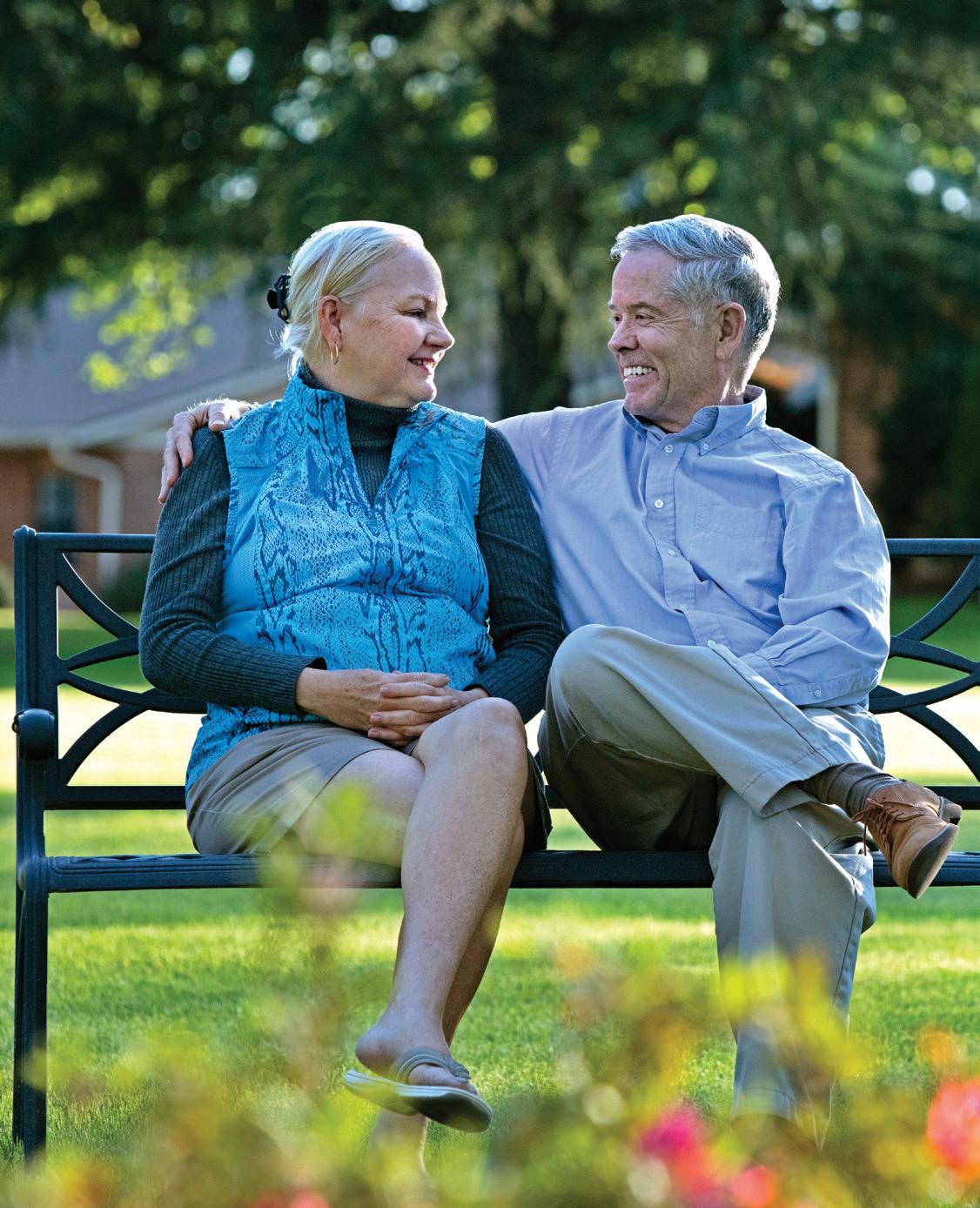

















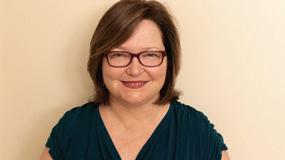

JANUARY 2023 - 3 OCTOBER 2022 - 12 RCC service is available for individuals who have hearing loss or speech disability to actively participate in teleconference calls or webinars by reading live captions on their laptop, mobile device or tablet. To inquire, contact kim.m.calabretta@t-mobile.com or visit relaync.com/rcc Accessible Communication with Captions! Relay Conference Captioning A Life Plan Community offered by Liberty Senior Living © 2022 Quail Haven Village SCAN HERE 155 BLAKE BLVD., PINEHURST, NC 28374 QUAILHAVENVILLAGE.COM DON’T JUST LIVE HERE... LOVE IT HERE. LIVE at Quail Haven, a Senior Living Community, and... LOVE the picturesque location conveniently close to the Village of Pinehurst LOVE the INSPIRE wellness program that helps promote an active lifestyle LOVE the newly renovated garden apartment homes LOVE the continuing care on-site to provide peace of mind Call 910.537.6812 to schedule a tour and see why residents don’t just live here, they LOVE IT HERE. LIMITED AVAILABILITY! Become a Priority Partner Today! 122162 quail haven love it here couple on bench ad update-outreach nc.indd 1 9/13/22 2:03 PM Tyler Chriscoe Attorney at Law Tyler@LorenzCreedLaw.com Margaret “Mia” Lorenz Attorney at Law MLorenz@LorenzCreedLaw.com LorenzCreedLaw.com | 910-695-8688 230 N Bennett St. Southern Pines, NC Our Practice Is Your Solution ∙ Estate Planning & Elder Law ∙ ∙ Real Estate ∙ ∙ Business Law ∙ ∙ Probate & Guardianship ∙ The Lorenz & Creed Law Firm represents cases pertaining to:
Amy Natt, , MS, CMC, CSA | amyn@agingoutreachservices.com
Question: My mom seems really down lately. She doesn’t go out much after my father’s death two years ago. She doesn’t call very often, and when she does, she doesn’t have much to say. When I suggest she might be suffering with depression, she scoffs and says that’s something young people deal with. If she refuses to even talk about it, how can I help her?
It is difficult when we observe someone who is seemingly struggling, but they are not willing or able to identify what might be wrong. Talking to your mom, starting the conversation, and maintaining contact with her are all great places to start. Depending how far apart you live, a routine weekly call and some schedule of routine in-person visits would help you monitor the situation. Phone calls are great, but it’s easy for people to fake a
5-minute conversation. If there are concerns, it may be easier to pick up on those during a longer in-person visit. If there are multiple adult children or involved family/friends, perhaps you can come up with an informal visitation schedule to ensure someone is routinely in contact with your mom.
It’s not uncommon for someone to process grief in their own way and timeline, but if it has been two years and she is still struggling, it might be time to talk to her primary care physician or a local counselor. If she is resistant to this, all you can do is offer her the resource. Perhaps do some of the research for her and provide her with some names and phone numbers. You might also look for books or articles on the topic that she can read in her own time, in the privacy of her home. If she identifies grief, there may be local support groups she would find helpful.
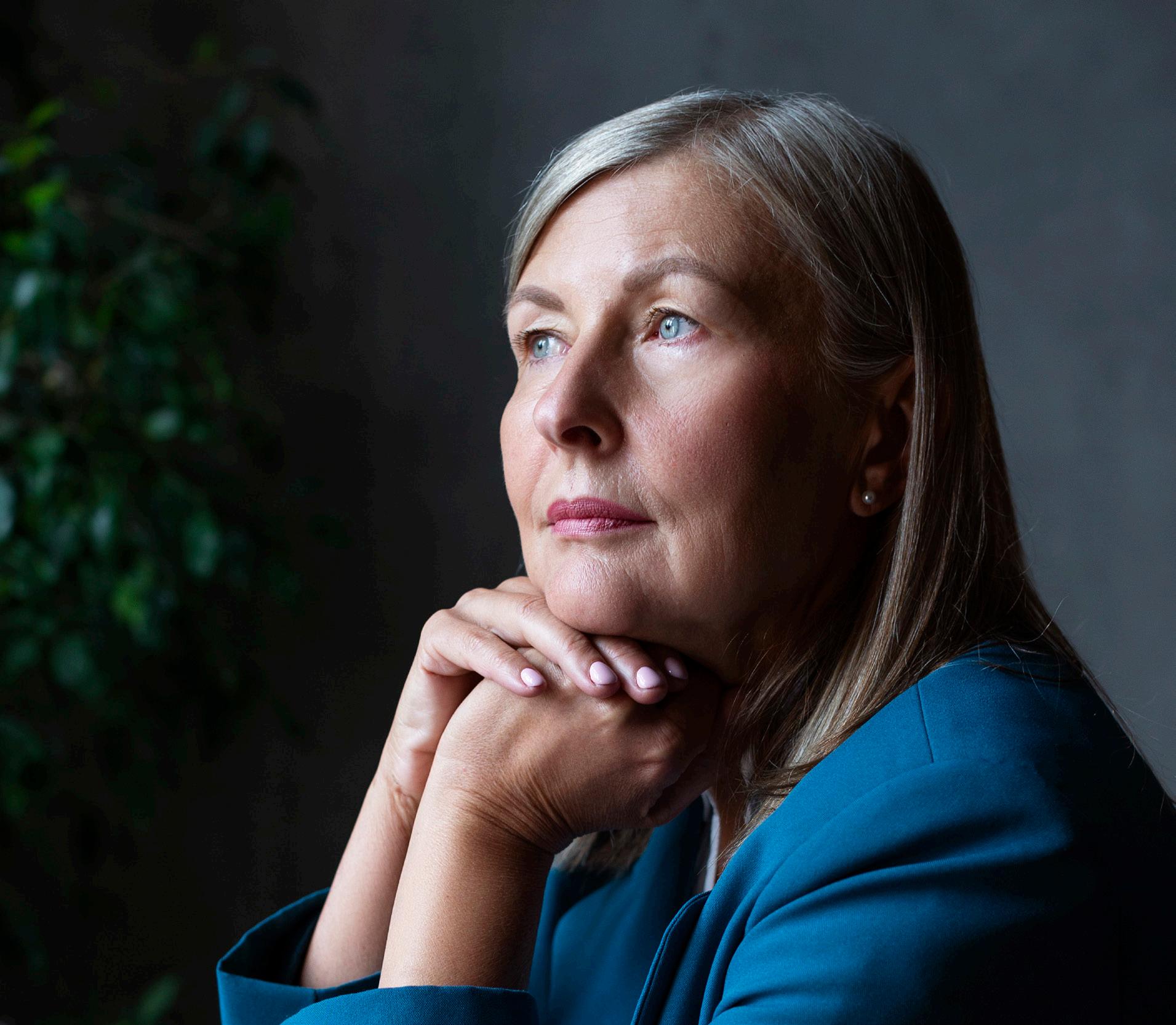
4 - JANUARY 2023
ASK THE EXPERT: DEALING WITH
DEPRESSION
FROM?
COME
SYMPTOMS
PT: WHERE DO
If your mom does not identify with the word depression or sees that as a negative in any way, I would avoid putting a label on how she is feeling and just express your concern or changes you have observed. A few things you might look for and try to keep your own notes on include:
• Have her sleeping patterns changed? Sleeping more or difficulty sleeping?
No one likes to be in pain. In fact, I have spent the past 20+ years helping people get out of pain. The most common question I hear is “How can I get this pain to go away?” The answer to this is simple. We first need to know Why you are hurting. Then we can figure out how to stop the pain. So, why are you hurting? There are many different reasons for pain to occur in our bodies. Pain can be due to a problem in the Muscles, Joints, Tendons, Organs or Nerves. It can also be due to Medication, Psychological reasons, or Nutrition
• Has her diet/weight changed in the past year? Eating more? Or not eating and experiencing weight loss?
• Have you noticed a change in social activities and involvement in other activities or hobbies she previously enjoyed?
• Is your mom experiencing a change in cognitive status. Is she more forgetful, confused, or anxious?
• Is your mom showing signs of increased fatigue or lack of energy to get through a typical day?
• Does your mom make statements that indicate sadness, worthlessness, or hopelessness?
Many health care professionals diagnose pain by Special Tests. During these tests, your practitioner will use their hands to push, pull and twist the areas that are causing you pain. These tests are very useful to find what structure is causing you pain. If you place stress on a structure and it increases your pain, it is likely that structure is contributing to your symptoms. Although helpful, many of these special tests are only 60-80% accurate. While this may look good at first, changing the way the question is framed will show that this also means they are 20-40% inaccurate. Misdiagnosis of pain can be very costly. At best it keeps you in pain longer, while in other cases it can allow symptoms to intensify. When you are dealing with pain, missing your favorite activities and sleepless nights… you want to be as accurate as possible!
The addition of Diagnostic Imaging in Physical Therapy has revolutionized the way pain is addressed. By utilizing Diagnostic Imaging, PT’s are now able to look inside you
and diagnose your pain with over 98% accuracy. That means that we can find the real problem, or problems, and address them from the beginning. No more trial and error. No more “try this for a few months and if it doesn’t get any better we will try to get an MRI”. With the addition of Diagnostic imaging, your Physical Therapist can now say “From my evaluation it looks like you have a problem in ____. We are going to do a Diagnostic Ultrasound and confirm this and fully check your joint.”
In a matter of a few days, we can have your test performed, results given to you and a new, more comprehensive plan to improve your pain.
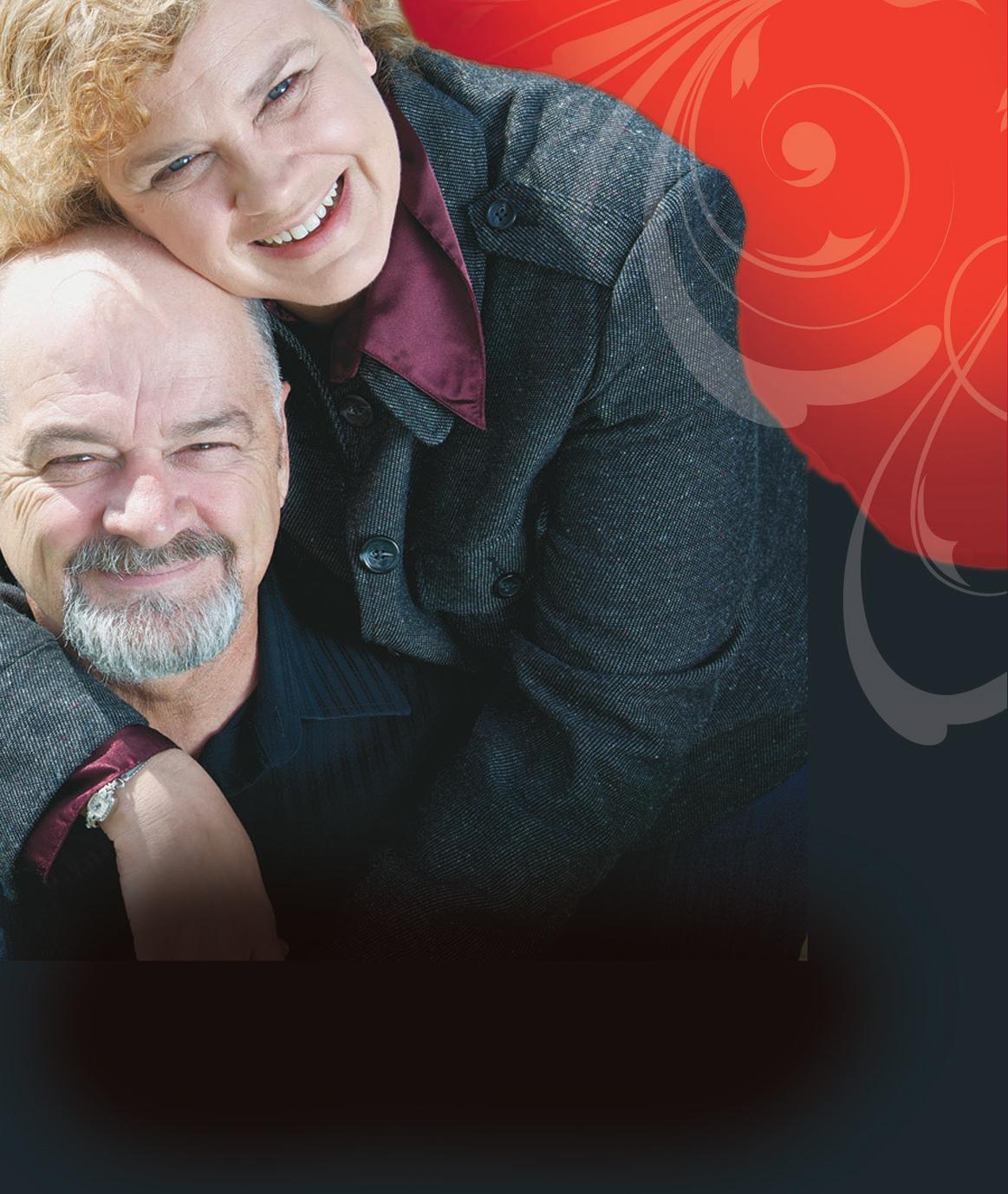
Diagnostic imaging in physical therapy includes:
Depression can be an issue as a person ages, and females seem to be at a higher risk. Being widowed is another risk factor, as well as other stressful life experiences. There is, however, a stigma that can be associated with this, especially for older generations. I would let her know that it is perfectly normal to be feeling down or going through a readjustment period and continue to support her and offer support services. There are a variety of treatment options available to her. If you have concerns that your mom is suicidal in any way or she makes statements to indicate this, please report this to her physician immediately or seek emergency care.
1. Musculoskeletal Ultrasound (MSKUS)
MSKUS is a safe, non-invasive, and painless diagnostic tool. It is used to diagnose structures such as tendons, muscles, bursas, ligaments, nerve entrapment/pinching and joint structure changes. Like a video, MSKUS captures real-time images of body structures and can assess a joint/area while it moves. This feature is especially useful as many times pain does not occur at rest, only with movement.
JANUARY 2023 - 5
OCTOBER 2022 - 10
Open Arms Retirement Center Assisted Living | Memory Care | Music & Memory Certified 612 Health Drive | Raeford | 910-875-3949 www.openarmsretirement.com Let us help you in making a decision about the care you are seeking. “Making a Difference in the Lives of Others” Dr. Sara S. Morrison, T, DPT, CDT, FCE, CFT, Cert DN, Cert FMT | Owner -Total Body Therapy & Wellness
Finding Purpose: YOUR SECOND

MOUNTAIN
by Amy Phariss
6 - JANUARY 2023
from page 1
Depending on the source, there are many definitions of the noun purpose:
1. the reason for which something is done or created or for which something exists (Oxford Languages)
2. something set up as an object or aim to be attained (Merriam-Webster)
3. why you do something or why something exists (Cambridge English Dictionary)
Each of these definitions helps us flesh out how purpose shows up in our own lives. It is why we do something. It’s the reason behind the aim to be attained, behind the goals we establish or the behaviors that become habits. Purpose drives our relationships, our professional lives, our choices of where to live and the decisions we make in all areas of our lives. It’s easy to see, then, how lacking purpose or being unclear about our purpose can leave us feeling rudderless and confused.
Purpose drives our lives so much, in fact, that endless famous writers and philosophers are quoted on the subject. Abraham Lincoln is quoted as saying, “Nothing will divert me from my purpose.” He didn’t say, “Nothing will divert me from my goal.” The distinction matters, of course, because our purpose is bigger than our goals. Our purpose is the umbrella under which our goals live, and without the greater purpose, goals often lack meaning or substance. Without a purpose, the goal to live a healthier life falls flat by February. The gyms empty out, and the people with the mere goal of walking an hour a day are nowhere to be found. It’s the people with the purpose to see their grandkids graduate high school or attend a loved-one’s wedding that summer that have the will and focus to keep going.
The hour on the treadmill is the goal. Spending time with loved ones is the purpose, the meaning behind the action.
Many of us realize our lives aren’t in alignment with our values, yet we still limit ourselves from living authentically. As a counselor, I see fear showing up all the time in my clients’ lives. Fear keeps them from making decisions, taking action and living lives that feel genuine and true for them.
What are the most common fears or stumbling blocks in living a life of purpose?
1. Fear of what people will think. We fear how the people in our lives who may not share our values will think of us if we begin to behave differently or express new values. We worry about how our relationships will change and how we will be perceived in social circles that may be a big part of our lives but may not necessarily reflect our current values.
2. Fear of failure. What if we value, for example, learning? We sign up for a new college class or degree. We fail. That is a huge fear, the fear of failure and the subsequent shame that is linked to failure for many of us. For many of us, not trying is easier (and safer) than trying and failing.
3. Fear of not having enough time. When we identify values and see big picture changes we’d like to me, time can seem like a barrier. Do I have enough time to actually get a degree in social work? Do I have enough time to build a new business? Do I have enough time to travel to 27 countries? Do I have enough time to spend with the people I love? Time, as we age, becomes our most precious asset. Many clients I work with fear running out of time so much, they become paralyzed before they actually begin.
JANUARY 2023 - 7 continued
4. Fear of making a mistake. Making mistakes can be viewed as failure. What if I try a new business and it flops or is unprofitable in the first two years? What if I go into a new endeavor and make a heap of mistakes, at the age of 65, when I should know better? Again, we worry what people will say, what mistakes and failure will do to our image and what kind of hit our egos will take when we fall flat on our faces (which is inevitable and very human). Mistakes, however, are not failures. And failures are not fatal. But knowing this and believing it are often two very different things.
5. Fear of change. This is, by far, the most debilitating fear I see in both my clients and in friends and myself. Change is hard. It’s mentally, physically, spiritually and socially upsetting in that it upsets the status quo. It disrupts the norm. Change, even when it’s “good” change, can be very unsettling. It’s new. We must engage in new ways, learn new ways of interacting with and experiencing our environment. This can be, for many of us, simply overwhelming. And the fear that the change will be bad or worse than the current norm is a challenge to overcome. In some ways, even if our status quo isn’t ideal, we know we can handle it. We’re already handling it. But what if the change coming isn’t manageable? What if we can’t handle the new normal? What then? This fear can be debilitating for many and lead to stagnation.
It turns out, purpose and meaning change over time and can sometimes be hard to pin down. Why we do what we do (or why we want to do what we do) seems like it should be simple and clear, but the why of our goals is often the hardest part to figure out.
For many of us, after the age of 50, as we near retirement or even after we retire, we begin to think more about why because the why is often different than when we began. For example, why do we work in our 20s and 30s? Well, for many of us, work is a way to pay bills and put food on the table. We go to work to support our families and ourselves. We need money to pay for vacations, have healthcare and send our kids to school. Both figuratively and literally, baby needs a new pair of shoes.
But when we near retirement, the why of work changes. We may not be supporting small children any longer. We may not need to invest in college funds or see to it that the mortgage is covered. So, what does getting up each day and driving to the office or job site mean? Why do we do it? For many of my clients, the question doesn’t have a clear answer anymore. Many of my clients have retirement funds or enough income to quit working or cut down on their hours. As they realize the need to work has changed, they begin to ask themselves: why am I doing this?
The answer is different for each person. For some, work is a way to socialize and get out of the house. For others, work becomes a way to learn a new skill and engage the mind in a new way. For others, work is a commitment to a greater purpose to support a community and give back to society. For others, work is still about an income, but it might be to supplement other monies rather than as the main effort in paying the bills.
And, of course, work is just one example of how we begin to question or explore the purpose of the most meaningful parts of our lives.
There is purpose behind how we spend our
8 - JANUARY 2023
time, our money and our health. How are we showing up each day in our relationships? Why are we spending time doing X when we really want to be doing Y? Why are we having lunch with Jodi every Tuesday when we’d rather be volunteering at the animal shelter or vice versa?
When clients begin to ask these questions, they begin to discover how their lives are either in alignment with their purpose or not. Mary Kay Ash said, “We must have a theme, a goal, a purpose in our lives. If you don’t know where you’re aiming, you don’t have a goal. My goal is to live my life in such a way that when I die, someone can say, she cared.” With this as her purpose, Ash was able to build a life that reflected her values and was based on the foundation of her purpose. Pablo Picasso said, “The purpose of art is to wash the dust of daily life off our souls.” Even art has a purpose. And art shows up all around us, in how we feed our families, how we dress, how we decorate our homes and interact with strangers. All of life is art, and the artful ways in which we live reflect our personal purpose and goals.
But while we may all be able to acknowledge the importance of finding purpose, how do we go about doing it? What are the actionable steps of finding purpose if it’s confusing or changing in the moment?
For many people, identifying values is the first step in better understanding purpose. Our purpose is usually closely aligned with our values. When our lives reflect our values, and when we live in alignment with those values, we generally have better mental health and feel overall happier and more purposeful. Values, like so many things, are incredibly unique. Even if we share similar values with others, the importance of those values may differ or the ways in which we live according to those values is unique. I may value, for example, education and learning. I might attend college or pursue a graduate degree as I live in alignment with this value. My friend may volunteer with an educational organization
to bring higher education to impoverished areas. Both of us value education and higher learning, but the ways in which that shows up in our lives are different. So, exploring not only what our values are but also how our actions reflect those values is an important first step in building a meaningful live.
Exploring one’s values can be done through thoughtful writing and conversation, either with your counselor or even family and friends. There are also assessments that can be quite helpful in exploring values from a larger perspective. Two of the most accessible and easiest to use tools are:
1. Personal Values Card Sort by W.R. Miller, J. C’de Baca, D.B. Matthews and P.L. Wilbourne. You can find the card sort for free online. Simply print out the exercise, cut up the cards (each card has a different value listed on it) and sort the cards into three piles: important to me, very important to me, not important to me. Then, whittle that list of very important to me down to 5 cards. Those are your top 5 values. https://casaa.unm.edu/inst/ Personal%20Values%20Card%20Sort.pdf
2. VIA Survey of Character Strengths (Values Action Institute – University of Pennsylvania). This survey is a series of questions that helps identify your values and character strengths. It requires creating a free account, and the survey takes approximately 25 minutes. The survey will then rank your strengths into three categories including your signature strengths, your middle strengths and your lesser strengths. Included in your assessment are suggestions on ways to apply your strengths. Your signature strengths are your top 5 strengths, so this assessment is similar to the card sort in whittling your strengths down to a top 5 list. https://www.authentichappiness. sas.upenn.edu/questionnaires/surveycharacter-strengths
JANUARY 2023 - 9
Assessing our values can seem like a simple, almost mundane task when we begin. We think: our values haven’t changed over our lives….they’re the same as how we were raised. We might think we value honesty, integrity, hard work, family and fun. Those may have been the values we were raised with and the values our society promoted as “worthy” goals. However, many clients are surprised when their assessments yield different results. With time and as we age and experience more of life, our values shift and can sometimes be opposite of how we were raised. My own values assessment shocked me. My top value is actually beauty. I was stunned. I didn’t even know “beauty” was a value, but it’s included on both the card sort and in the VIA assessment. In fact, my top signature strength is “Appreciation of Beauty and Excellence.” This result, while surprising, led me to consider what beauty and excellence mean to me, how my life reflects this value (or does not) and what this means for me in terms of the actions I take and the decisions I make. Once I identified my values and explored their meaning, I began to live a life that feels more authentic and genuine for me. Many internal struggles fall away when clients, friends and family members are able to live in alignment with their true values rather than the values they’ve accepted as their own from childhood or social expectations.
Our sense of purpose and how we define meaning changes over time. What we once valued may no longer seem meaningful. We may find value in different ways or seek purpose through new avenues. There are second mountains to climb. As we consider what those mountains may be, we reflect both on what we have learned through our past and the direction we hope to go in the future. The process and journey are as important and meaningful as the summit, a lesson many of us have learned already and can apply to these new pursuits.
Finding your purpose can be as simple as reflecting on your values and choosing a direction. It can also be a longer, more thoughtful process over the course of months or years. These books are a few of the many on the subject, and they serve as a great way to get started and begin exploring what meaning and purpose look like for you, at this age and stage of life.
Man’s Search for Meaning Viktor E. Frankl

Frankl, a survivor of a German concentration camp, writes about his experience in the camp as well as how he utilized the tools and perspective taken from that experience to live a purposefilled life. Frankl’s book is one part story and one part expression of the psychology he developed as a result of that story: logotherapy. The book is small in stature and big on meaning and impact. A great place to start if you’re considering your own search for meaning, Frankl’s story is a human story applicable to everyone.
The Second Mountain: The Quest for a Moral Life David Brooks
Brooks explores not just what it means to live a meaningful, purpose-filled life but how to go about doing it. Starting with what he describes as the first mountain, Brooks examines our first climb in life, which is often dictated by social norms. We do what our families did or what they told us to do. We take jobs that fit without our culture or
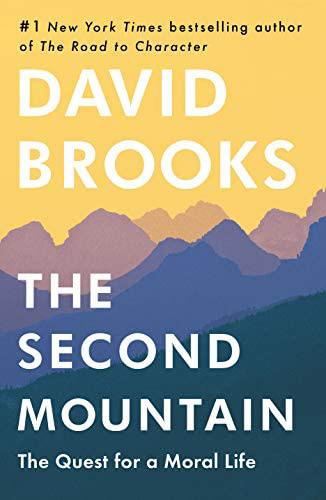
10 - JANUARY 2023
social class. Our expectations and plans reflect what we’ve been taught to value: a stable career, a house filled with fine furniture, a photo album filled with family vacation shots. But what happens when that first mountain is climbed, when we reach the peak? What happens when we come down the other side and land in the valley below? We have a choice, Brooks argues, between staying in that valley or climbing a second mountain. This mountain is more intentional, a reflection of what we’ve learned, the mistakes we’ve made and the choices we’ve lived with (some good, some bad). The second mountain is, for some of us, a way to get it right or at least, get it closer to who we truly are rather than what society told us we should be. Brooks interviews those who have gone before him, climbing their second mountains and learning along the way.
The Purpose Driven Life: What on Earth am I Here For?
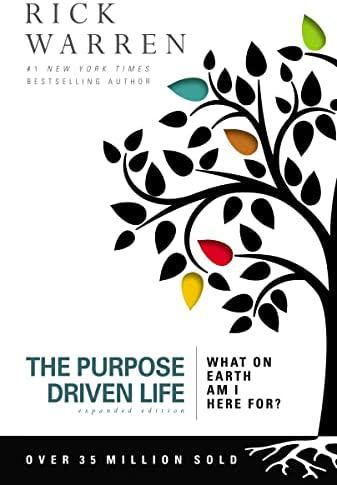
Rick Warren
Warren’s book is a classic in the self-help, selfexploration field and is rooted in a Christian perspective. In fact, Warren is a pastor and bases the idea of purpose on the principal that God has put each of us here for a reason. Finding and living that reason is at the heart of the spiritual journey, and Warren’s books serves (for many readers) as a sort of road map for that journey. With over 35 million copies sold worldwide, The Purpose Driven Life certainly strikes a chord.
The Last Lecture: Lessons in
Living
Randy Pausch and Jeffrey Zaslow
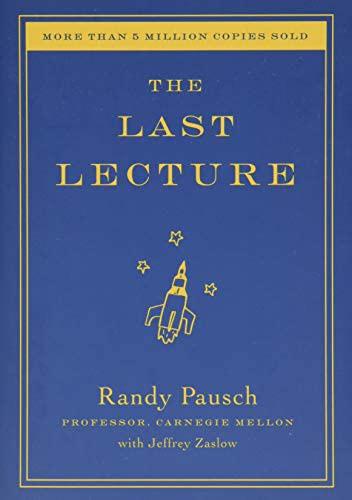
Carnegie Mellon computer science professor Randy Pausch’s last lecture comes on the heels of his own cancer diagnosis, enabling Pausch a perspective and sense of clarity regarding a subject we often tackle with vague ideas and lofty goals – the subject of how we spend the precious time we are given on earth. Ironically, Pausch doesn’t write about dying as much as he writes about living, now, in the moment we have.
The Happiness of Pursuit: Finding the Quest that Will Bring Purpose to Your Life Chris Guillebeau
This book is about the common cliché we hear daily: it’s not the destination; it’s the journey. For Guillebeau, it’s about the quest. Happiness comes, he argues, when we have the meaning and purpose behind a goal, a long-term quest for something bigger than the day-to-day. That quest might be becoming a worldclass athlete or cooking a perfect souffle or traveling to every country in the world before the age of 35 (Guillebeau nailed that one). The point isn’t the end goal itself but the passion of setting forth toward the goal, the steps taken along the way and the lessons learned through failure as much as through success. But none of it is possible without the first step, which is choosing a quest to
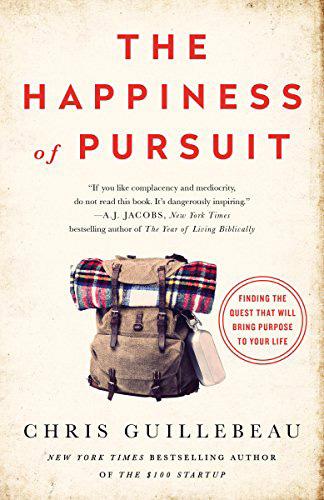
JANUARY 2023 - 11
MS: QUESTIONS AND ANSWERS
| ashleys@aoscaremanagement.com
Ashley Seace, AOS Care Manager
AOS Care Management’s Ashley Seace is embarking on a new journey – starting a local support group for people living with multiple sclerosis (MS). As a Care Manager and Aging Life Care™ Professional, Ashley is skilled and knowledgeable in the needs of the community in which she works. Ashley helps clients identify resources to ensure they’re not only surviving but thriving. Starting a group to support people living with MS is another example of how Seace combines her knowledge, skills and passion for community into a single endeavor.
We chatted with Ashley about the upcoming support group to give readers an idea of what to expect and answer any questions ahead of time. We’re looking forward to hearing more as the group gets underway.
ONC: This year, one of your goals is to establish a support group for people living with multiple sclerosis. Tell us why that’s a goal and what led you to working toward a support group.
Ashley Seace: I started working with individuals through the National Multiple Sclerosis Society and realized how often people with MS are overlooked. MS is an invisible disease, which makes it hard for people to understand what someone is going through. The individuals I have met have been the kindest, most determined people when it comes to finding resources and advocating for themselves. I knew I wanted to start a support group in the area but landed with MS because I want to give individuals living with MS the chance to meet others going through similar situations. I want to provide a safe space for people to meet, to talk about their diagnosis, and to get advice from others living with MS.
ONC: Why do you think support groups are helpful for people with chronic health conditions? What have you seen as the biggest benefit to support groups?
AS: The biggest benefit to support groups is finding someone who will look you in the eyes and tell you “me too” when discussing what you are going through. Having an outlet is so important. It makes a difference when you can talk about your struggles with other people who have experienced similar things. I also think there’s a benefit to attending support groups because you learn about different resources in the area that you might not be aware of. We can all learn from each other, which is a wonderful thing.
ONC: What can someone attending the MS support group expect during the meeting? What is a typical meeting like, and what happens during the meeting?
AS: A typical meeting will start with an ice breaker to get the group talking. That way we can get to know each other’s names quickly. It will usually have to do with how you are doing now regarding your MS diagnosis. I think individuals can expect to be heard and have their questions answered, or at least be given the promise someone will find the answer for them.
ONC: Can caregivers or loved ones attend the support group?
AS: Absolutely! I think it is important for caregivers and loved ones to attend so that they can better understand the disease and the individual they are caring for.
ONC: Do people who attend the group have to talk or engage with the group? Is this a requirement of attending?
AS: Not at all. If you are not comfortable sharing, you are not required to talk. Sharing helps the time move and it helps others grow comfortable with you, but it is not a requirement. It might take you several visits before you feel up to sharing with everyone and that’s ok!
ONC: Does attending the support group cost money?
AS: This support group is completely free. Thanks to the Southern Pines Library and Laurel Holden, AOS Care Management was able to partner with them and utilize the meeting space for the educational programs and the support group that will start after the programs!
ONC: Thank you for so much information, Ashley. If anyone is interested in learning more about the group, how can they reach you?
AS: They can call the office or email. I’m here and ready to get started!
910.692.0683 | AshleyS@AOSCareManagement.com
12 - JANUARY 2023
GRAY MATTER GAMES
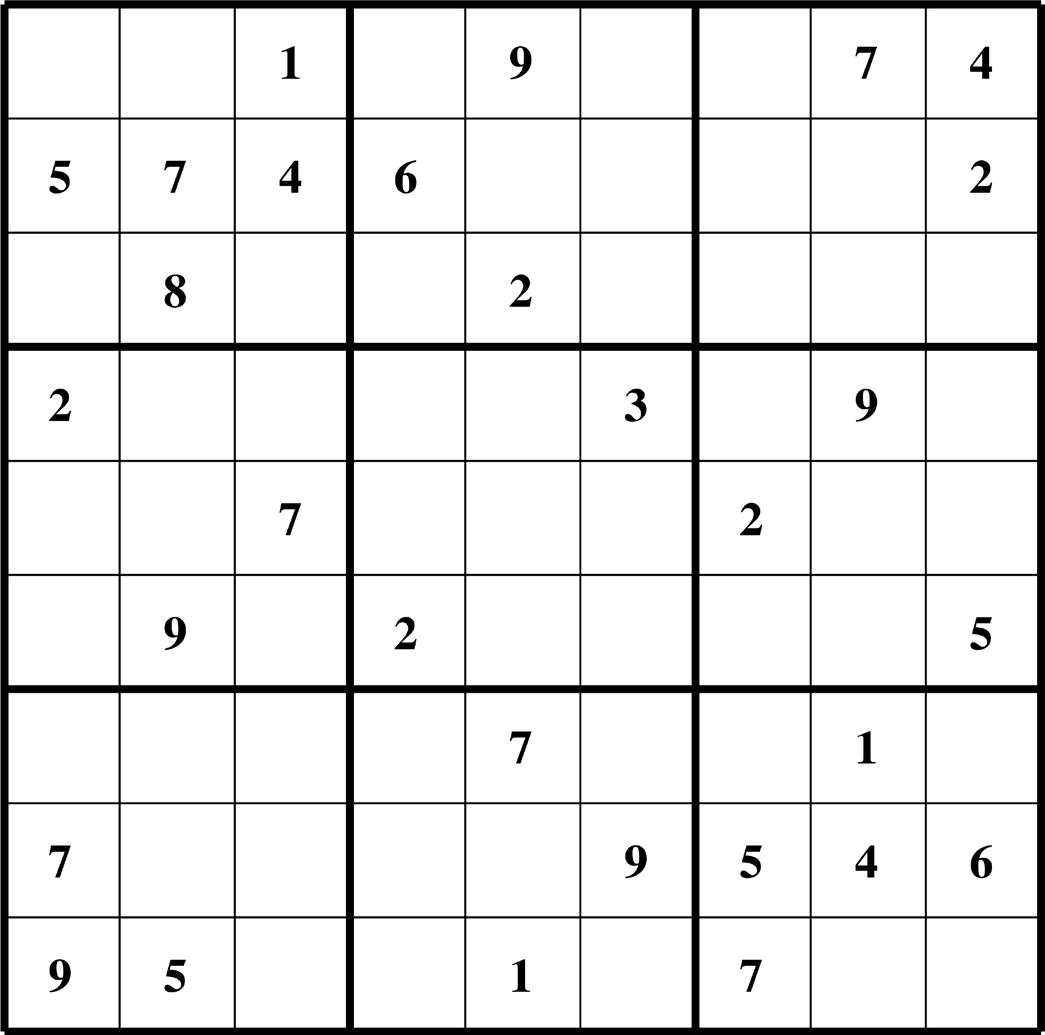
JANUARY 2023 - 13
1.
5.
9.
12.
13.
15.
16.
18.
19.
20.
21.
23.
24.
25. _____
28.
32.
33.
34.
35.
36.
37.
38.
39.
40.
41.
43.
45.
46.
47.
50.
51.
54.
55.
58.
59.
60.
61.
62.
63.
DOWN 1.
2.
3.
4.
5.
6.
others 7. Brio 8. Moray,
9. Arid 10. Beep 11. Bunches 14. Abandons 15. Firm or solid earth
wds) 17. Elders’
22.
23.
24.
25.
26.
27.
28.
29.
30.
31.
33.
36.
42.
43.
44.
46.
47.
48.
49.
50.
51.
52.
53.
57.
ACROSS
Bent
Certain surgeon’s “patient”
Marienbad, for one
Clearasil target
Angry, with “up”
Blue hue
Little sister, for example
“Cogito ___ sum”
Clod chopper
Black cat, maybe
Avenue
Some Olympians, nowadays
Try, as a case
ID
Marine crustacean
“Mi chiamano Mimi,” e.g.
Breed
Gladly
Jiffs
Whacks
Data
Jersey, e.g.
Affectedly creative
Campus military org.
Satisfies
Catch, as in a net
Attired
“Guilty,” e.g.
Kind of wit
The “C” in U.P.C.
20-20, e.g.
“Pumping ___”
Type of way to prepare oats
___ mortals
Carries
Abstruse
Convened
Makeup, e.g.
Elizabeth ___, English suffragist
Shellacking
An aviation organization
A chip, maybe
Undertake, with “out”
Aftershock
Marriage and
e.g.
(2
teachings
“The Joy Luck Club” author
Synthetic material for wax modeling
A shrew
Port holders
“Gladiator” setting
Allowed
Fires
Birchbark
Holds up
Methuselah’s father
Bit
Inflammation of a mucous membrane
A pint, maybe
Firstborn
Call for
Surveys
Brinks
Length x width, for a rectangle
After-dinner drink
Hint
Old Chinese money
Any thing
Catch a glimpse of 56. ___ grass
“___ to Billie Joe”


14 - JANUARY 2023
Be on the lookout for our February 2023 newsletter, celebrating the 12 year anniversary! Feature article: Downsizing Enjoying OutreachNC? You can have your monthly copy delivered, digitally or physically. Visit AOSNC.com for more information or to sign up, TODAY!
Gray Matter Games Solutions



JANUARY 2023 - 15
for a
WhatCan WE DoToHelp ? To learn more about the Personal Music Player and other AOS & Friends Care programs/ser
www.facebook.com/AOSFriendsCare DO YOU KNOW SOMEONE WITH MEMORY IMPAIRMENT WHO COULD USE SOME FINANCIAL HELP? Grants of up
income
eligible individuals for the following: Contact us NOW to request a Grant Application! •Caregiver services •Respite care •Adult Day care tuition •Identifying if benefits may be available from government agencies •Equipment, devices, and therapeutic aids •Placement assistance •Identifying care needs •Help coordinating or obtaining care JOIN US FOR A SERIES OF FREE SEMINARS EXPLORING MS Join us for a three-part series to help families understand and navigate a Multiple Sclerosis (MS) diagnosis. This open discussion will explore symptoms, the diagnosis, treatment plans, resources, and support. Speaker: Ashley Seace, AOS Care Management JANUARY 9 JANUARY 23 JANUARY 30 Symptoms & Diagnosis Treatments Resources & Support 4:00 PM | Doors Open at 3:30 PM SOUTHERN PINES PUBLIC LIBRARY 170 W Connecticut Ave. | Southern Pines Seminars proudly sponsored by Aging Outreach Services For more information, call 910.692.0683 ATTEND ONE OR ALL THREE!
Best Wishes
Happy, Healthy New Year from Dr. Wellener & Her Team!
vices: 910.585.6757 info@aosfcare.org www.aosfcare.org
$1,000 to
qualified
At Fox Hollow Senior Living, our residents have the opportunity to do everything they’ve always loved. With Five Star Dining, days filled with friends and adventures, you can be yourself again – while we take care of the rest.

16 - JANUARY 2023 OCTOBER 2022 - 16
Every Day Five Star
Make
to visit and explore our community.
FOX HOLLOW SENIOR LIVING COMMUNITY 190 Fox Hollow Road • Pinehurst, NC 28374 910-695-0011 • www.FoxHollowSeniorLiving.com ASSISTED LIVING • MEMORY CARE RESPITE/SHORT-TERM STAYS ©2021 Five Star Senior Living Call












































